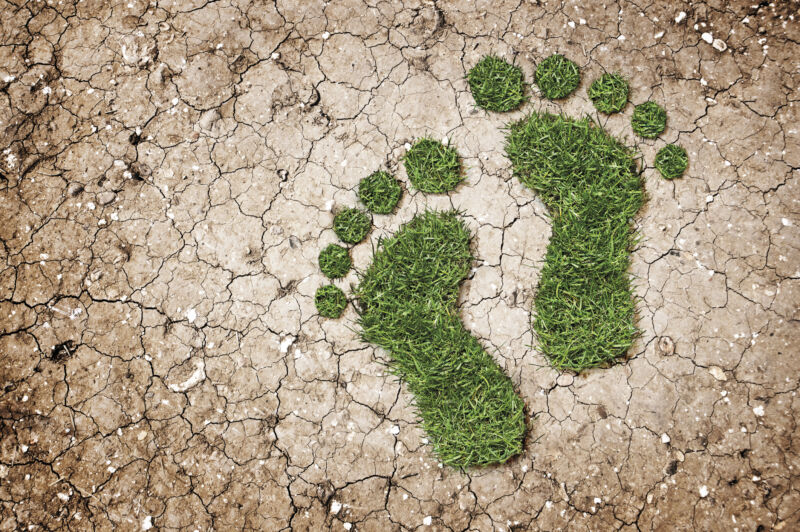
Enlarge / Footprints made out of fresh green grass on a dry cracked earth base. (credit: Hype Photography / Getty Images)
Carbon taxes can attract a lot of flak. On one hand, some groups hate taxes and are indifferent to climate change—in Canada, various provincial governments actively fought (and ultimately lost) against the federal government’s implementation of a carbon levy. On the other hand, some progressives worry that a carbon tax would hurt lower-income people by costing them more money.
According to new research, however, this doesn’t need to be the case. Noah Scovronick, a researcher at the Gangarosa Department of Environmental Health at Emory University and one of the paper’s authors, said that it’s possible to help reduce emissions while also implementing a carbon tax that redistributes wealth to people on the lower side of the socioeconomic spectrum.
And that's good news, as carbon taxes are already in use. According to the World Bank, in 2020, around 40 countries and 20 cities, states, or provinces already have some kind of carbon-pricing mechanism. The United States has, occasionally, mulled over the idea of implementing one itself. “[It] does have a history in terms of being endorsed by a number of politicians and/or economists as a sort of—I don’t want to say straightforward—but one of the potentially more straightforward ways you could approach emissions reductions,” Scovronick told Ars.
No comments:
Post a Comment